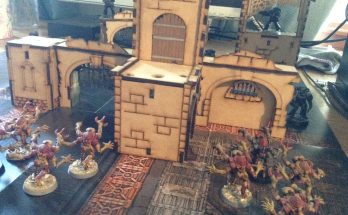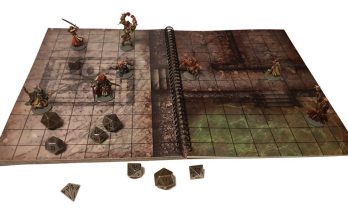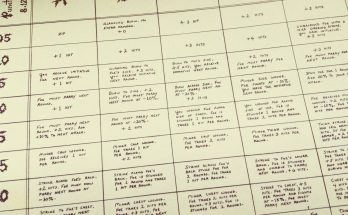What your PC knows can say much about who he (or she) is. More, even, than their choice of character class as they can help describe how your character acts, where they came from, and their whole outlook on life. Their character class tells only a small part of the story, while their skills may well reveal all.
Each character in 4e D&D gains a number of skills which represent the areas of life in which your hero has received some form of training. These might be self-taught through continual usage (A Ranger’s Nature skill, for example), learned through study in a formal Academy (a Wizard’s Arcana skill), at the feet of a lone master (a Monk’s Religion skill) or sheer natural talent (a Rogue’s Thievery skill). In truth, your hero probably learned what he knew from a variety of sources. Necessity may well have taught the Ranger how to survive in the wild (one use of the Nature skill), but his old mentor showed him how to follow tracks, and a friendly Wizard taught him the names of the plants and herbs.
The list of available skills for each class isn’t a hard and fast list. Background Options (one of my favourite rules in 4e) add additional available skills to the list, though you still need to spend one of your Training slots to gain it. For example, a Fighter who is an Arcane Refugee could opt to take the Arcana skill as one of his three (or four, if Human) Trained skills. That’s a compelling backstory, and hasn’t even cost the player a Feat to gain. Background Options are, as the name suggests, an entirely optional rule though I strongly recommend their use as they can help make your character stand out from the crowd just that bit more.
The other option with a Background’s skill selection is to take a +2 onto a skill rather than use a Training slot. That’s a good choice is you want a character to show some talent in an unusual area, but keep your Training slots for the class-based skills, or to boost an already Trained skill to new heights. A Wizard who is an Arcane Refugee (perhaps ousted when the Gnomish Necromancers took over the academy) could take a +2 to his already Trained Arcana skill – he wasn’t merely a student, but one of the tutors!
What gets interesting is when we look at the skills as pairs rather than in isolation. After all, any Wizard can know Arcana, but one who is trained in Arcana & Dungeoneering is likely to be a much more hands-on guy than a bookish mage who knows Arcana & History. Know all three, and you’re firmly into Tomb Raider territory (skin tight shorts optional). I’ve intentionally limited this to looking at pairs of skills though, as the number of combinations of three (or more) skills makes my head implode. Which can be quite messy.
Some skills make obvious pairs. Training in Insight & Streetwise makes for a great conversationalist and information gatherer, while Nature & Heal says your hero is something of a herbalist. Take Acrobatics & Athletics if you want to emphasise the physical side of your character’s nature, and Stealth & Thievery if you favour the shadowy side of life.
The less obvious combinations are, in some ways, more attractive. A character with Athletics & Heal could be a sports (or gladiatorial) coach, while one with Nature & Intimidate a lion tamer. Take Perception & Stealth and you have a scout or spy, and Endurance & History makes….. I dunno. A long distance librarian, maybe.
Thanks to the Skill Training Feat (and Background Options, mentioned above) it’s possible to use any skill-pair with any character class as a starting point, so if you really want to create Charles Darwin the Barbarian (Training in Nature & History. Done), you can.
Consider playing against type with odd skill sets for your character. A Rogue with Perception & Stealth makes for a great scout, whereas a Cleric with the same skill Trainings could be a cult infiltrator. A Wizard with Bluff & Stealth would likely favour more secretive magicks compared to a pyromaniac who took Athletics & Intimidate!
Taking unusual skills for your class is also great way to mini multiclass without burning a Feat. Take a Background Option which represents your hero’s history, and your Fighter could take the Religion skill and claim to be a lay preacher smiting foes in the name of Pelor. Give him the Thievery skill and he’s every bit as useful as a regular Rogue, and less likely to die in combat thanks to his heavier armour and extra hit points.
Even if you take a skill pair which is archetypal for your class (Athletics & Intimidate for a Fighter, for example), you’re saying something about your character, something about how he responds to danger and how he reacts to the outside world. That Athletic, Intimidating Fighter you’re playing – play him as Athletic and Intimidating. They’re not just skills, but personality & role-playing hooks too!
Use them well :D




Great post, this is definitely a must read for players old and new. I think far too often things on a character sheet are looked at only mechanically, when truth be told everything on that page has very deep underlying role play elements!
Well, the skills define what you know; not necessarily what you are all the time. However, you can be highly skilled and high leveled and still . . . the goblin can kill you with a lucky shot.
* widely grins. *